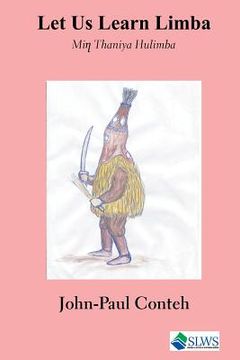Share
Let Us Learn Limba: Min Thaniya Hulimba (in English)
John-Paul Conteh
(Author)
·
Sierra Leonean Writers Series
· Paperback
Let Us Learn Limba: Min Thaniya Hulimba (in English) - Conteh, John-Paul
$ 10.26
$ 13.00
You save: $ 2.74
Choose the list to add your product or create one New List
✓ Product added successfully to the Wishlist.
Go to My WishlistsIt will be shipped from our warehouse between
Monday, May 27 and
Tuesday, May 28.
You will receive it anywhere in United States between 1 and 3 business days after shipment.
Synopsis "Let Us Learn Limba: Min Thaniya Hulimba (in English)"
This piece of work is a humble attempt at preparing a source book for the teaching of Limba language in schools and colleges. It has been observed by linguists that the Limba ethnic group has got the largest number of dialects in Sierra Leone. There are at least 12 dialectal variations in Limba but only five are most significant in that they have got a very large number of speakers. These are Biriwa, Safroko, Sella, Tonko and Wara Wara. The other dialects are a sub-set of either one or two of the bigger dialects. For example, Bimankoh is a subset of Biriwa and Safroko; Bikelen is a subset of Biriwa and Songo, and Kalanthuba; Bisonko is a subset of Kelen and Wara Wara; while Kalanthuba is a subset of Safroko, Simiria and Biriwa; the Simiria is a subset of Safroko and Kalanthuba, slightly influenced by Themne and Koranko. The Kamukeh dialect is a mixture of Wara Wara, Yalunka and Fula who surround them in Koinadugu district. It is also observed that the small quantum of written materials in Limba is heavily influenced by Tonko and Sela Limba. School children of other dialects other than the two are often faced with a gross disadvantage when taking the Limba Language at Basic Education Certificate Examinations (BECE) to mark the completion of Junior Secondary School (JSS). The reason is that the few Tonko/Sela writers do not take cognizance of the dialectal variations at least among the five major groupings.
- 0% (0)
- 0% (0)
- 0% (0)
- 0% (0)
- 0% (0)
All books in our catalog are Original.
The book is written in English.
The binding of this edition is Paperback.
✓ Producto agregado correctamente al carro, Ir a Pagar.

